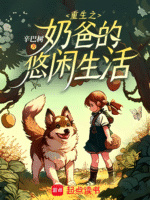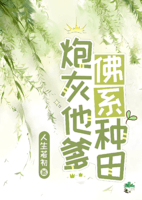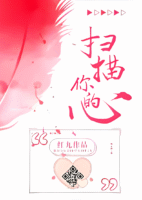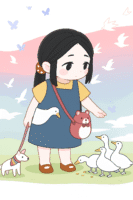Farm System C82
by MarineTLChapter 82
“On July 22nd, a massive rainstorm hit Zhongnan in northern Natal, with a single-day rainfall of 667mm.”
“On July 23rd, the Weir River rose by 25cm, reaching its highest level in nearly a decade.”
“From July 15th to 25th, massive rainstorms swept through twenty countries including Natal and Weir, affecting 723 towns and regions.”
…
For the next three days, the news was dominated by coverage of the Harma Storm. The Harma Storm was an Acid Rain storm system formed over Harma. Its landfall in Natal, Weir, and other regions signaled that all 323 countries around the globe were now affected by Acid Rain.
“Feels like we’re living in a doomsday movie…”
On the morning of July 25th, in Wangjiazhuang Village, Shaan Province, Zhao Shunhai scrolled through his phone intently.
Zhao Shunhai was a typical farmer from Shaan Province. His family owned five mu of land, which he had planted with Acid Rain Corn at the beginning of the year in response to the government’s call. The corn had already grown taller than a man and was expected to be harvested in September. After reading the news, he tapped into some short videos—footage showing the devastation in the polar regions. Compared to the equatorial zones, the damage there looked even more severe.
“Sigh.” Zhao Shunhai let out a long breath. Harma was a global disaster—nowhere had been spared.
He lived in the village with his wife, but she had gone to the city recently to help their daughter-in-law during her postpartum confinement, leaving him alone at home. After checking his phone, Zhao Shunhai went straight to the kitchen to make porridge. The rice in the kitchen was fragrant and plump—it was Chengfeng Rice his son had sent from the city. He’d been eating it for three days and still couldn’t get enough.
At 1 PM, after a hearty meal, Zhao Shunhai lay down in the corridor, fanning himself. Ever since the Harma Storm, global temperatures had gone haywire. This year, the average daily temperature in Shaan Province had reached 38°C. Unwilling to use the air conditioner, he had spent the entire week fanning himself in the corridor.
Just as Zhao Shunhai put on his sunglasses and was about to turn on the radio, the sputtering sound of a tractor came from outside. He opened the front gate and saw a young man in a tank top driving by on a tractor. The young man wore a straw hat, and a rusty water tank was hitched to the back of the tractor.
“Daliang?” Zhao Shunhai called out quickly. The young man was Zhao Daliang, a relative from the same family line.
“Uncle Zhao,” Zhao Daliang stopped the tractor when he heard his name.
“Where are you headed?” Zhao Shunhai pointed at the tractor.
“Watering the fields.”
Zhao Shunhai was surprised. “There’s water?”
Shaan Province, part of the Loess Plateau Region, had been suffering from severe drought due to rising temperatures. Although Acid Rain Seeds were somewhat resistant to both drought and flooding, the water shortage in Shaan Province was so severe that the growth and ear formation rate of Acid Rain Corn lagged behind that of Shan and He Provinces. Wangjiazhuang’s irrigation system was outdated, and for the past two months, they had relied on the Village Brigade to release water for irrigation.
“They announced it on the radio this morning. The reservoir’s got a long line already.”
Zhao Shunhai didn’t care about the blazing sun anymore. He grabbed his straw hat and headed to the back of the house to ready his donkey cart. It was an old donkey pulling a rubber water barrel. Every time he watered his fields, he had to make three trips.
“I’ll water my fields first. If you’re still at it later, I’ll use the tractor to help you haul water,” Zhao Daliang offered as he watched Zhao Shunhai getting ready.
“Thanks a lot!” Zhao Shunhai said gratefully.
Rainfall was scarce in Wangjiazhuang, and the reservoir water was usually released by the city authorities. Half an hour later, he arrived at the reservoir with his donkey cart and found two long lines already formed.
“This water hasn’t been filtered. It’s only for irrigation, not for drinking. Don’t get yourselves sick,” the Village Party Secretary reminded everyone through a loudspeaker while people filled their containers.
Rainwater forms when water vapor rises and condenses into droplets. But now that Earth’s oceans were saturated with Acid Rain, all precipitation in the past six months had been diluted acid water. Technically, 90% of the country’s oceans had been contaminated by Acid Rain, and clean water was no longer available anywhere in the world.
These days, residents relied on filtration systems for drinking water. In Longxia, the top filter brand was Hengzhiyuan. Their industrial filters cost a million, while home units were priced at twenty thousand. Due to the high cost, most people had to collect filtered water from village or neighborhood committees.
In Wangjiazhuang, filtered water for residents was released on the 15th of every month. This time, the water being distributed was acid water for irrigation.
“Acid water tastes different from clean water—we’d know if we drank it.”
“Forget drinking—I boil and cool my face-washing water three times before using it.”
…
Though acid water wasn’t safe for consumption, it could still be used to irrigate land, thanks to the special properties of Acid Rain Seeds.
After a long wait, at 2:20 PM, Zhao Shunhai finally filled his barrel and left.
His cornfield was on a hillside to the east of Wangjiazhuang. To get there, he had to travel a long dirt path. Shaan Province suffered from severe soil erosion. In the past, sparse green branches lined the road, but after the Harma Storm, those branches had withered into brittle twigs. Walking across the Loess Plateau, Zhao Shunhai felt like he was in a post-apocalyptic movie.
The sun blazed overhead. Zhao Shunhai unscrewed his bottle and took a sip of water, then tapped the donkey on the head. “Time for a drink.”
“Hee-haw—” The donkey brayed and came to a halt.
Zhao Shunhai got off the cart and pulled out a stainless steel basin from the back. He poured the remaining water into it, and the donkey eagerly began to drink.
“Survived another year—tough little guy,” Zhao Shunhai said as he stroked the donkey’s coat.
The donkey had been raised by his son back in middle school and was now fifteen years old. When the Acid Rain crisis hit, feed became unavailable nationwide. Zhao Shunhai had pulled some strings to get wheat stalks for fodder. The donkey had barely scraped through the year. Compared to those that ended up in meat processing plants, this one was a low-budget survivor.
Ten minutes later, the donkey finished drinking, and Zhao Shunhai led it onward. By 3:30 PM, man and beast arrived at the hillside field. The corn stalks had already reached two meters in height. Their yellow-green hue showed clear signs of water stress.
Zhao Shunhai rested at the edge of the field and casually plucked an ear of corn. The kernels weren’t fully mature yet, and though the cob looked crooked, about 80% of the kernels had formed.
“Not bad at all.”
He examined the ear carefully. A lifelong farmer, he had seen droughts where the corn didn’t even form ears. He had braced himself for a total loss. But after running to the field over a dozen times in the past two months, this cornfield had turned out to be a pleasant surprise.
He peeled the kernels one by one and fed them to the donkey, which munched happily.
Then he used a hose to start irrigating the field. Just as he was about to fetch a second load of water, the sputtering sound of a tractor came from the foot of the hill.
“Uncle Zhao!” Zhao Daliang was driving up in his tractor.
“Daliang,” Zhao Shunhai blinked in surprise. He had assumed Daliang was just being polite earlier. After all, the young man had five mu of land of his own. But he really came…
“I already watered one round this morning. I’m pretty quick,” Zhao Daliang said as he jumped off the tractor to help.
With his help, the five mu of land were watered in no time.
“I’ll go buy some pork knuckle—come over for dinner tonight,” Zhao Shunhai said warmly.
“No need. I’ve still got stuff to do back home.” Pork knuckle cost 131 yuan per jin in the village—no way he was going to mooch a meal.
They chatted for a while before Zhao Daliang drove off, and Zhao Shunhai headed home with his little donkey.
…
Over the following week, news reports continued to focus on the polar disasters. After nearly half a month of relentless battering, the Harma Storm finally came to an end on July 30th.
“Natal’s disaster zone spans 7.23 million square kilometers, with direct economic losses totaling 8 trillion Natal dollars. Post-disaster recovery is underway under extreme pressure.”
“Twenty-three ranches in Liren City, Weir, were flooded. Ranchers are accusing the government of failing to issue timely warnings. A massive protest involving 30,000 people has broken out…”
“Polar regions face severe devastation and may be on the brink of a sudden economic crisis.”
…
The disaster was far worse than anyone had imagined.
On July 31st, Natal issued an international appeal: “The Harma Storm is a catastrophic event. 350 million people in Natal have been affected. Due to the sudden onset of the disaster, we are requesting international aid…”
Natal had been hit hardest by the Harma Storm. The appeal primarily sought personnel and technical assistance for post-disaster recovery.
Though the plea was heartfelt, every country was struggling to stay afloat. The world now faced a new, looming crisis: with global vegetation drastically reduced, temperatures were rising faster than ever.
…
“Forty-one degrees. This heat’s trying to kill us.”
On August 1st, in Wangjia Village, Shaan Province, Zhao Shunhai fanned himself as he walked back into the house.
Ever since the last time it rained, the temperature in Shaan Province had been climbing steadily. Zhao Shunhai was used to living frugally—if he could cool off in the corridor, he’d never turn on the AC in the house. He’d held out for a whole month, but now that the temperature had broken forty-one degrees Celsius, he couldn’t take it anymore.
Shaanan wasn’t just hot—it was the kind of suffocating, stifling heat that made your skin crawl.
After cooling off in the air-conditioned room for a while, he went to move the donkey into the corridor. Donkeys were tough and drought-resistant, but even it had collapsed from the heat, lying flat on the ground.
Zhao Shunhai rested for a bit, but he couldn’t shake the worry gnawing at him. He called his wife on video chat.
He was forty-seven this year. His son, Zhao Dafei, was twenty-six and had bought a second-hand apartment in Shaanan City with his wife. These days, his son delivered packages for a living, and his daughter-in-law—who used to manage a bubble tea shop—was now at home recovering after giving birth.
“What is it?”
Thirty seconds later, his wife’s face appeared on the screen, her hair done up in soft curls.
“Just wanted to talk,” Zhao Shunhai said, then added curiously, “You’re not at home?”
His wife was pushing a shopping cart, with shelves of toilet paper behind her.
“Out buying some paper…” She turned the camera toward the shelves. Toilet paper now cost fifty to sixty yuan per pack. The ten-roll packs that used to go for 9.9 yuan had shot up to 35.9.
“That expensive?” Zhao Shunhai was stunned by the price.
“That’s not even the worst of it.” She turned the camera to the diaper section. The cheapest pack of diapers was now 181 yuan.
“The trees have died, the pasture grass isn’t ready yet, and even when it is, we’ll still have to split it between feed for livestock and basic hygiene products…” She went on and on, repeating what she’d read online. It wasn’t just Shaanan City—prices for toilet paper were rising all over the country.
And toilet paper was just one part of it. Even clothes were more expensive this year than last.
“I’m gonna keep looking around.” She grumbled a bit more, then picked up three packs of diapers. Complaints were one thing, but she still had to buy the essentials.
“Sigh…” Zhao Shunhai ended the video call with a heavy sigh.
Life had gotten better, sure—but some things were still taking a serious hit.
Bang bang!
As Zhao Shunhai sat there lost in thought, a loud knock came from the door.
He rushed to open it.
“Uncle Zhao!” Zhao Daliang stood outside, panting heavily.
“What’s wrong?” Zhao Shunhai was startled.
“There’s a problem with the crops.”
Zhao Shunhai: !!!
He and Zhao Daliang jumped on the electric scooter and rushed to the fields. Along the way, they saw many villagers heading the same direction. There could only be one reason for the sudden panic: locusts.
Locusts—commonly known as grasshoppers—were nothing new to farmers. Anyone who grew crops had seen them before. Some villagers even caught them during spring and autumn to fry up as snacks.
Seeing a few locusts in the field wasn’t scary. What was terrifying was a swarm.
Half an hour later, Zhao Shunhai stood frozen in front of his cornfield.
A swarm of locusts buzzed through the air, clinging to the stalks. The leaves of the corn plants were chewed ragged, full of holes and missing chunks.
He stared at the corn.
These were Acid Rain Seeds’ drought-resistant corn—tough against dry spells.
But this kind of physical devastation from a locust plague…
It looked like even they couldn’t hold up.










0 Comments